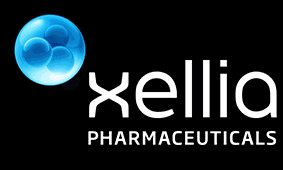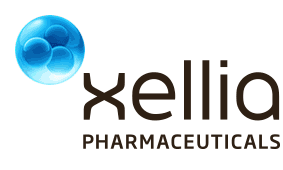This is a translated version of the original article. Please read the original article in Danish here (page 12-13).
Xellia Pharmaceuticals - A global leader in providing anti-infective treatments and other critical care therapies for serious and often life-threatening conditions.
As one of the world’s largest manufacturers of specialty critical care anti-infectives, Xellia supplies both Active Pharmaceutical Ingredients (APIs) and Sterile Injectable Products (Finished Dosage Forms/FDFs). The purpose is to ensure delivery and supply of anti-inflammatory solutions against multi-resistant microorganisms.
written by Michael Fahlgren
“During the last 30 years, we have slowly developed a business which has grown from a small, Norwegian, family-owned company to one of the world’s largest pharmaceutical companies producing both anti-infective APIs to the finished product in the form of sterile injectable products. In 2013, Novo Holdings A/S came into the picture, which meant that the development of finished products gained momentum”, CEO Carl-Åke Carlsson explains initially.
Extensive expertise
With almost 120 years of experience, Xellia Pharmaceuticals has gained extensive expertise in almost all areas connected to the development and marketing of the company’s core products. When it comes to several sub-categories, such as infections, antibiotic treatment, production techniques - including fermentation, purification, and analysis methods - the challenges connected to the production of sterile injection products have been solved along the way.
“We have made investments in the company with a slightly longer time horizon. In the beginning, with Novo Holdings A/S, at the end of 2013/the beginning of 2014, we were considering which companies were developing which types of antibiotics, which challenges they faced, and what we could learn from them to become an even stronger player in the antibiotic market. The majority of new antibiotics are developed in small companies, at universities and start-up companies, which, besides for the funding, lack the knowledge of robust formulations and production processes to make the products industrially scalable”, Carl-Åke Carlsson says.
New products as a premix
Besides the need for new molecules, the proper use of existing products has been a theme. To select the right product, dose it correctly, and deliver in a timely manner is a challenge within antibiotic treatments.
““Time to treat”, i.e. the time before treatment of a given infection begins in the hospital, is critical. Data from Sepsis Alliance in the U.S. shows that ‘the risk of death from sepsis increases by an average of up to 7.6% with every hour that passes before treatment begins’. A diagnosis of each patient’s symptoms is required to know what you are treating, and in order to select the right treatment, the challenge of identifying the right treatment in a timely manner is still not quite solved easily yet, even though the field of diagnostics is improving. Moreover, the mistakes that may occur during treatment in the hospital due to potential errors in dosing, use of wrong infusion liquid, or contamination of the product before/during treatment is concerning. Thus, a logical place to start would be somewhere not too complicated which would also solve all problems once and for all; to consider the production of a premix where the finished solution is ready-to-use, directly coming from injection bags”, Carl-Åke Carlsson explains.
In addition to the benefit of timeliness to treat patients, premixed bags can also be deemed to drive efficiency and cost savings within hospitals, alleviate the pharmacy technicians' workload and support in promoting safe medication administration.
The price for both old and new antibiotics is a challenge
Given the success that some premixed products can achieve, it is only natural for Xellia Pharmaceuticals to look for other types of medicinal products which can be distributed using similar delivery methods. Therefore, Xellia Pharmaceuticals chose to use this technology and the premix concept for other critical care products facing the same challenges as antibiotics when it comes to compounding in the hospitals. Currently, Xellia Pharmaceuticals has several similar products in development.
“Antibiotics are extremely interesting, as you can buy vancomycin (which is prescribed to treat systemic methicillin-resistant (MRSA) and sensitive strains where other antibiotics cannot be used due to intolerance or drug resistance, ed.) for 2-3 USD per vial.” The healthcare professional prescribes the product at an appropriate dosage with the purpose of treating the infection to ultimately save a life. The price setting of old antibiotics is a massive challenge, as it is difficult to make enough money to maintain a responsible production that complies with the strict legal and regulatory requirements; this is the same for new antibiotics. In addition to the struggle with low prices, it is also a struggle with the low sales volumes, even though it is for the best in terms of “antibiotic stewardship”. This is one aspect as to why some large pharmaceutical companies have no interest in developing new antibiotics. In the western part of the world, we have become very dependent on medicines (both antibiotics and others) from China and India, e.g., intermediates, APIs, and finished products, which are sold at a very low price. However, this is a double-edged sword in terms of supply security in general, and during crises especially, as we saw during the Covid pandemic, where certain countries were reluctant to export medicine, because they wanted to ensure they could treat their own population first. It is critical to develop stable, industrialized, and scalable production processes, and finished product formulations, as well as to control production facilities in order to be able to supply products at any time. Thus, we place a lot of funding into upgrading our production facilities”, Carl-Åke Carlsson emphasizes.
Pharmaceutical Supply Chain Initiative
Xellia Pharmaceuticals joined the Pharmaceutical Supply Chain Initiative on 27 September 2022 with the purpose of promoting sustainable supply chains and business practices.
Xellia Pharmaceuticals appointed Great Place to Work
Xellia Pharmaceuticals has been awarded the highly prestigious award “Great Place to Work”. At Xellia, employees from all sites - in Europe, the Middle East, U.S., and Asia were asked to participate in the survey. In total, 90% of Xellia’s employees participated which illustrated the high level of commitment and supported the validity of the survey result. The Great Place to Work prize has been awarded to companies since 1992, where more than 100 million employees around the world have defined what makes a good workplace experience.
About the company
At Xellia Pharmaceuticals, we place high value on the qualified development and production of fermented and semi-synthetic small molecule-based products. The company has a long history in producing Active Pharmaceutical Ingredients (APIs) which are difficult to manufacture. Xellia Pharmaceuticals also has a series of FDF products (Finished Dosage Form), primarily in the category of injectable products for hospitals. The company’s portfolio of products contains some of the most critical products used in the fight against infections.
Did you know this about Xellia Pharmaceuticals?
- The company was established as a family-owned business in Oslo, Norway, in 1903.
- The family owned the company until 2006, when the Norwegian company Alpharma acquired it.
- Today, Xellia is 100% owned by Novo Holdings A/S and has been since 2013.
- The headquarters is based in Copenhagen, Denmark, and the company consists of four top-level production facilities located in Denmark, Hungary, China, and the U.S., as well as two R&D Centers of Excellence in Croatia and Norway.
- The majority of Xellia Pharmaceuticals’ customers are comprised of the 500 largest B2B companies in the pharmaceutical industry.

